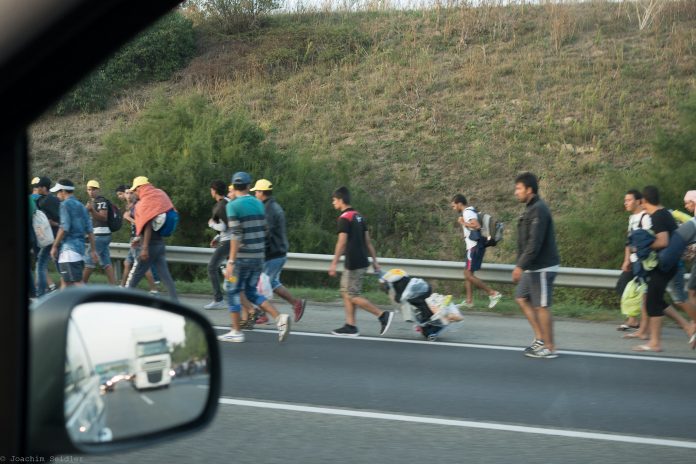EU countries are obliged to prevent unauthorised border crossings into European territory but they also have to ensure respect of fundamental rights, including the right to request asylum.
With 505 votes to 124 and 55 abstentions, plenary adopted a report assessing the application of the 2013 directive on asylum procedures and specifically the fast-tracked border procedure (article 43). MEPs note that the directive does not include a clear definition of this type of procedure nor specifies its objectives, leading to lack of uniformity in its application. They are worried about the increase of fundamental rights violations at the external borders, including many cases of persons being refused entry without their asylum claims being registered. Member states have a duty to inform persons on the possibility to apply for asylum and must offer effective remedy to those whose entry is refused, notes the text. MEPs call on national authorities to comply with the rules and ask the European Commission to suspend EU payments in case of serious deficiencies.
Detention of asylum-seekers only as last resource
The Parliament complains that applicants subject to border procedures are likely to be placed in detention during the examination of their asylum application, although, as established in the Reception Conditions Directive, asylum-seekers may be detained “only under very clearly defined exceptional circumstances”. Pointing to the deplorable detention conditions in transit zones and detention centres in border areas, MEPs underline that detention must remain a measure of last resort and encourage member states to find alternatives and to offer dignified reception conditions in border facilities. In this context, they propose establishing an independent monitoring mechanism to verify the decision-making process on border procedures as well as the detention conditions.
Unaccompanied children and other vulnerable asylum-seekers
The report denounces that while member states have mechanisms to identify applicants in need of special procedures guarantees (such as victims of torture, rape or other forms of serious violence), they are often ineffective. According to MEPs, unaccompanied minors should never be subject to the faster border procedure, with their applications being instead processed under the regular asylum procedure. They also stress that the border procedure does not exempt national authorities of their obligations to provide applicants access to legal assistance, representation and procedural information, as well as interpretation.
“We all agree that border procedures should run as quickly and efficiently as possible. But we also agree that the asylum system must function under the rule of law – with respect for human rights and human dignity. We are concerned about the increasing reports of human rights violations in border areas. Member states have a duty to prevent unauthorized border crossings, but they are not allowed to reject applicants and collective expulsions are not permitted”, said rapporteur Erik Marquardt (Greens/EFA, DE), during the presentation of the report to plenary.
The current asylum procedures directive allows member states to quickly assess asylum applications at their borders, or in transit zones. The time limit for a decision in a border procedure varies across the EU from two days to 28 days, and for lodging an appeal from two to seven days.The new Pact on Asylum and Migration, tabled by the European Commission in September, includes a proposal for a faster asylum border procedure, as well as a pre-entry screening mechanism.

